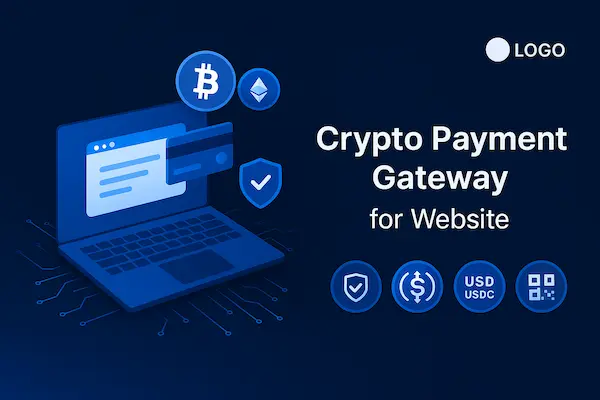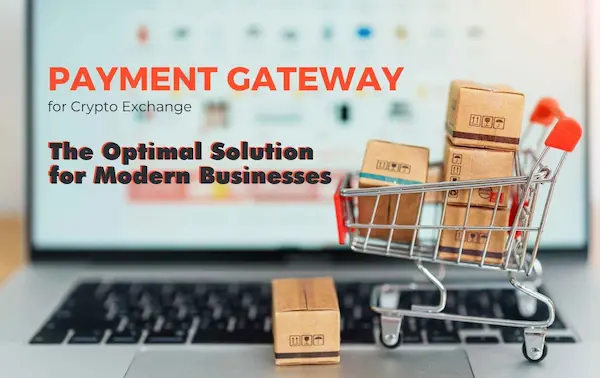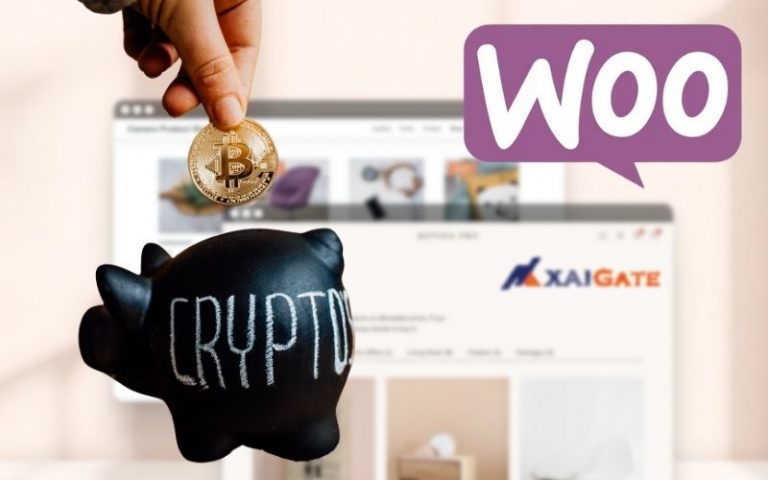In today’s global e-commerce landscape, payment methods are evolving faster than ever. Traditional credit cards and bank transfers are no longer enough for businesses that want to scale internationally. Customers demand faster, cheaper, and borderless transactions. This is where a crypto payment gateway for website comes in as a game-changer.
Unlike conventional payment processors that rely on banks and charge high transaction fees, crypto gateways allow businesses to receive payments instantly, securely, and without middlemen. With the growing adoption of stablecoins like USDT, USDC, and PYUSD, companies can now enjoy the benefits of digital assets while minimizing volatility risks.
The trend in 2026 is clear: from e-commerce and travel agencies to iGaming and digital services, businesses across industries are embracing crypto payment gateways for websites to stay competitive and attract a global customer base.
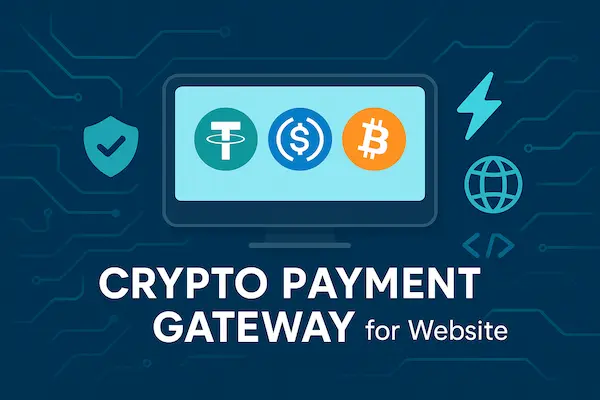
Contents
- 1 1. What is a Crypto Payment Gateway for Website?
- 2 2. Benefits of Adding a Crypto Payment Gateway to Your Website
- 3 3. Best Crypto Payment Gateways for Websites in 2026
- 4 4. How to Integrate a Crypto Payment Gateway into Your Website
- 5 5. Case Studies – Real Success with Crypto Payment Gateways
- 6 6. Key Industries Adopting Crypto Payment Gateways for Websites
- 7 7. Future Trends of Crypto Payment Gateways Beyond 2026
- 8 FAQs – Crypto Payment Gateway for Website
- 9 Conclusion – Why Your Website Needs a Crypto Payment Gateway in 2026
1. What is a Crypto Payment Gateway for Website?
When running an online business, choosing the right payment method is critical to building customer trust and improving conversions. A crypto payment gateway for website is designed to give merchants a modern alternative to credit cards, PayPal, or bank transfers. It enables businesses to accept digital currencies securely and seamlessly, helping them tap into a growing global audience of crypto users.
1. Definition and Concept
A crypto payment gateway for website is a digital payment solution that enables merchants to accept cryptocurrencies directly on their websites. It acts as a bridge between the customer, who pays in crypto, and the merchant, who can choose to receive either crypto or fiat currency.
In simple terms, it allows online stores, SaaS platforms, and service providers to expand their payment options beyond traditional credit cards, PayPal, or bank transfers. While conventional methods can take days to settle, crypto transactions are usually confirmed within minutes—at a fraction of the cost.
2. How Does a Crypto Payment Gateway Work?
The process typically involves four key steps:
Customer selects crypto at checkout (e.g., Bitcoin, Ethereum, USDT).
The gateway generates a temporary wallet address for the transaction.
The blockchain confirms the payment, usually in seconds or minutes.
The merchant receives funds in crypto or auto-converted fiat, depending on the gateway settings.
Integration can be done in two main ways:
API Integration: Flexible and customizable for developers.
Plugins: Easy-to-install solutions for popular platforms like WooCommerce, Shopify, and Magento.
This flexibility makes crypto payment gateways for websites not just a tool for large tech enterprises, but also for small businesses, freelancers, and startups who want to tap into the crypto economy.
Table 1: Crypto Payment Gateway vs. Traditional Payment Gateway
| Feature | Crypto Payment Gateway for Website | Traditional Payment Gateway (Visa/MasterCard) |
|---|---|---|
| Transaction Speed | Minutes (blockchain confirmation, 24/7) | 2–5 business days (bank settlement) |
| Transaction Fees | 0.2% – 1% | 2.5% – 4% + hidden charges |
| Borderless Payments | Global, no currency conversion needed | Restricted by region & currency exchange fees |
| Chargeback Risk | None (immutable blockchain) | High (fraud & disputes common) |
| Supported Assets | Cryptocurrencies, Stablecoins (USDT, USDC, PYUSD) | Local currencies only |
| Integration | API, Plugins, Fast | Banking approval, paperwork, longer onboarding |
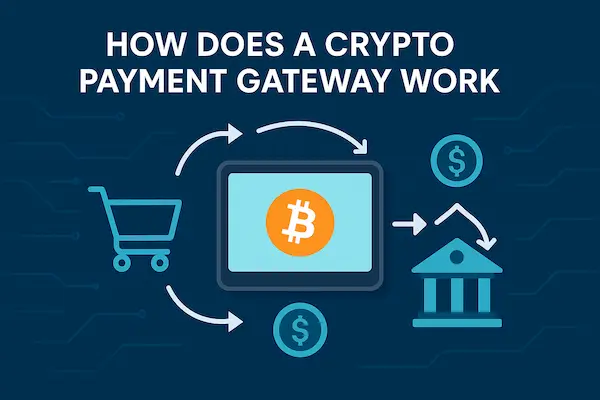
2. Benefits of Adding a Crypto Payment Gateway to Your Website
Integrating a crypto payment gateway for website isn’t just about keeping up with trends — it’s about giving your business a competitive edge. By enabling crypto payments, merchants can lower costs, access global markets, and offer customers a secure and modern checkout experience. Let’s break down the key advantages that make this solution a must-have in 2026.
1. Faster & Borderless Payments
Unlike traditional banking systems that rely on intermediaries and cut-off times, crypto transactions are processed on the blockchain around the clock. Payments can be confirmed within minutes, no matter where your customer is located. This speed makes it easier for international buyers to purchase from your website without facing long settlement delays.
2. Lower Transaction Fees
One of the strongest reasons businesses adopt crypto gateways is cost efficiency. While credit card processors typically charge between 2.5% and 4% per transaction, most crypto payment gateways only take 0.5% to 1%. This can significantly reduce overhead for merchants, especially those with high transaction volumes.
3. Enhanced Security & Transparency
Every crypto transaction is recorded on the blockchain, making it nearly impossible to alter or counterfeit. This protects merchants from chargebacks and fraudulent claims, which are common in traditional payment systems. Customers also benefit from knowing their payments are secure and verifiable.
4. Customer Convenience & Higher Conversion
Many customers now prefer using digital assets, particularly stablecoins like USDT and USDC. By offering crypto as a payment option, websites can attract this growing segment of buyers. The result is higher customer satisfaction and a noticeable boost in conversion rates.
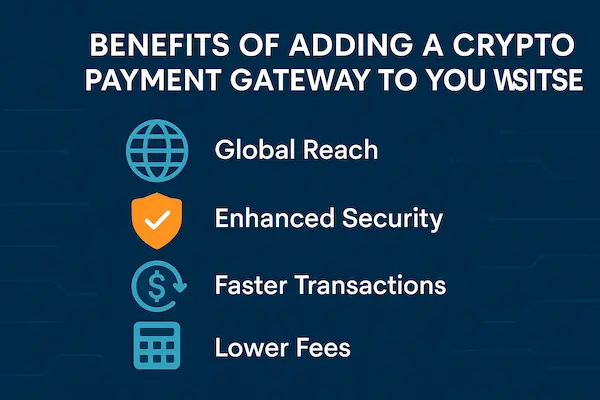
3. Best Crypto Payment Gateways for Websites in 2026
With dozens of providers available, choosing the right crypto payment gateway for website can feel overwhelming. Each solution offers different features, transaction fees, and levels of integration support. To help you decide, here are some of the leading crypto gateways in 2026 that stand out for reliability, cost-effectiveness, and ease of use.
1. XaiGate
XaiGate focuses on stablecoin payments such as USDT, USDC, and PYUSD. Its gateway is designed for global merchants, offering a secure PCI DSS–compliant system, fast settlements, and a powerful API for developers. For businesses that want stability without the volatility of Bitcoin or Ethereum, XaiGate is a top choice.
2. BitPay
BitPay is one of the oldest and most established crypto payment providers. It supports a wide range of cryptocurrencies and offers both business accounts and consumer wallets. While the fees are slightly higher than some newer platforms, its reputation and security track record make it a trusted option.
3. NOWPayments
Known for flexibility, NOWPayments allows merchants to accept payments in 200+ cryptocurrencies. It integrates easily with WooCommerce, Shopify, and other e-commerce platforms through plugins. Its automated coin-conversion feature also helps reduce volatility risks for merchants.
4. Coinbase Commerce
Backed by Coinbase, one of the largest crypto exchanges in the world, Coinbase Commerce offers an easy-to-use solution for startups and small businesses. It supports major coins, provides built-in conversion to fiat, and integrates smoothly with popular website platforms.
Quick Comparison Table
| Gateway | Supported Coins | Fees (approx.) | Integration Options | Best For |
|---|---|---|---|---|
| XaiGate | USDT, USDC, PYUSD | 0.2% – 0.5% | API, plugins | Stablecoin-focused businesses |
| BitPay | BTC, ETH, stablecoins | ~1% | API, POS, plugins | Established enterprises |
| NOWPayments | 200+ coins | 0.5% – 1% | Plugins, API, donations | Flexible multi-coin merchants |
| Coinbase Commerce | BTC, ETH, USDC, more | 1% | API, plugins | Startups & small businesses |
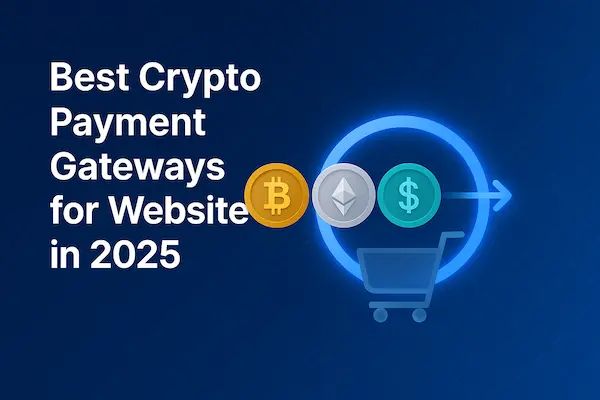
4. How to Integrate a Crypto Payment Gateway into Your Website
Adding a crypto payment gateway for website may sound technical, but most modern providers have made the process surprisingly straightforward. Whether you run a WooCommerce store, a SaaS platform, or a custom-built site, integration can be done in just a few steps. By following a structured approach, you can start accepting crypto payments in days instead of weeks.
Step 1 – Choose the Right Gateway
Start by evaluating your business needs. Do you want to focus on stablecoins like USDT and USDC, or do you prefer supporting a wide variety of coins? Compare transaction fees, security features, settlement options, and ease of integration before selecting a provider.
Step 2 – Set Up a Merchant Account
Once you choose a gateway, sign up for a merchant account. Most platforms will require some level of KYC (Know Your Customer) verification. During this process, you’ll configure your payout preferences, either in crypto or automatically converted to fiat.
Step 3 – Install Plugin or API Integration
For popular platforms such as WordPress, Shopify, or Magento, you can often install a ready-made plugin. If you need more control, developers can use the provider’s API to build a custom integration. This flexibility ensures that a crypto payment gateway can fit businesses of all sizes.
Step 4 – Test and Go Live
Before accepting real payments, always run test transactions in a sandbox environment. This ensures that the checkout process, payment confirmations, and settlement flows all work as expected. Once everything runs smoothly, you can go live and start accepting crypto from customers worldwide.
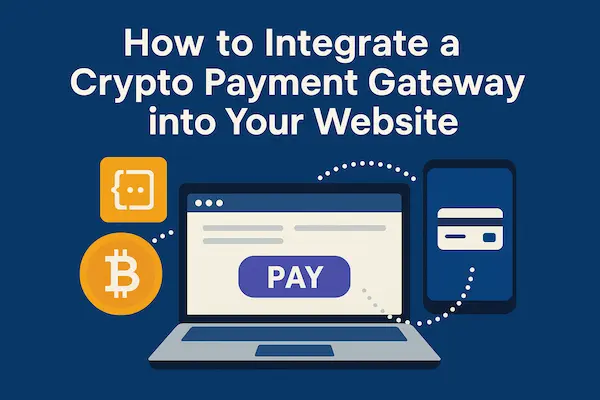
5. Case Studies – Real Success with Crypto Payment Gateways
While the benefits of a crypto payment gateway for website are clear in theory, real-world examples show how powerful this solution can be. Businesses across different industries have already proven that adopting crypto payments can improve sales, reduce costs, and attract new customers. Here are two standout cases that highlight its impact.
E-commerce Growth with Stablecoin Payments
A mid-sized fashion retailer integrated USDT payments through XaiGate in late 2024. Within three months, the brand reported a 25% increase in international orders, mainly from regions where credit card adoption is limited but crypto is widely used. By offering stablecoin payments, the store eliminated currency conversion issues and reduced chargeback disputes to nearly zero.
Online Casino Boosting Global Customers
An online gaming platform integrated a multi-coin payment gateway using NOWPayments. By supporting Bitcoin, Ethereum, and stablecoins, the site opened its doors to customers in over 40 new countries. According to their internal data, crypto players deposited 35% more on average compared to traditional payment users, proving that crypto-friendly platforms can capture higher-value customers.
6. Key Industries Adopting Crypto Payment Gateways for Websites
The adoption of crypto payment gateways for websites is no longer limited to tech-savvy startups. In 2026, a wide range of industries are integrating crypto as a payment option to stay competitive and meet global customer demands. From e-commerce to gaming, here are some of the sectors leading the charge.
E-commerce & Retail
Online retailers are among the first movers in crypto adoption. By integrating stablecoin payments, stores can sell to customers in countries where credit card penetration is low. Lower fees also allow merchants to maintain healthier margins while offering competitive prices.
Travel & Hotels
The travel industry has embraced crypto to attract international tourists who prefer borderless payments. From booking flights to hotel stays, crypto gateways make it easier to process reservations instantly without worrying about currency exchange.
Online Casinos & Gaming
Gaming and casino platforms are at the forefront of crypto payments. Players prefer the privacy, speed, and low fees of digital assets. For operators, crypto gateways reduce fraud and chargeback risks while boosting average transaction values.
Adult Industry
This sector has historically faced restrictions with traditional payment processors. Crypto payment gateways provide a reliable alternative, enabling businesses to accept payments without fear of sudden account freezes or high-risk surcharges.
Legal & Consulting Services
Freelancers, consultants, and even law firms are now offering crypto as a payment option. For international clients, this reduces friction by avoiding delays from bank transfers and wire fees. It also showcases forward-thinking professionalism.
Table 2: Key Factors to Consider When Choosing a Crypto Payment Gateway
| Factor | Why It Matters | What to Look For in 2026 |
|---|---|---|
| Supported Currencies | Determines who can pay you | Stablecoins (USDT, USDC), Bitcoin, Ethereum |
| Transaction Fees | Directly affects your profit margins | 0.5% – 1% is optimal |
| Integration Options | Impacts speed of deployment | Ready-made plugins + flexible API |
| Security & Compliance | Protects your business from fraud & regulations | PCI DSS compliance, SSL encryption, blockchain logs |
| Settlement Options | Flexibility in payouts | Option to receive crypto or auto-convert to fiat |
| Customer Experience | Higher conversions with smooth checkout | Multi-device compatibility, fast confirmation |
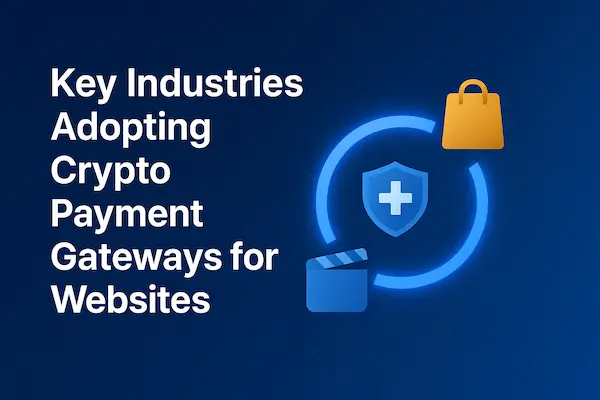
7. Future Trends of Crypto Payment Gateways Beyond 2026
The payments industry is evolving rapidly, and crypto payment gateways for websites are at the center of this transformation. Looking beyond 2026, several trends are set to redefine how merchants and customers interact with digital assets. Businesses that anticipate these changes will be better positioned to stay ahead of competitors and capture new opportunities.
AI & Automation in Payment Processing
Artificial intelligence is expected to play a greater role in transaction monitoring, fraud detection, and automated reconciliation. Smart algorithms will allow gateways to process payments faster, reduce errors, and personalize checkout experiences.
CBDC (Central Bank Digital Currencies) Integration
With more governments piloting CBDCs, future crypto gateways will likely support these state-backed digital currencies alongside stablecoins. This could bridge the gap between traditional finance and crypto, making adoption more mainstream.
Web3 & Metaverse Payments
As e-commerce expands into Web3 and the Metaverse, payment gateways will need to handle transactions in virtual environments. Merchants may soon accept not just Bitcoin or USDT, but also tokens from metaverse platforms and NFTs tied to products or services.
FAQs – Crypto Payment Gateway for Website
1. What is the best crypto payment gateway for websites in 2026?
The best option is one that offers stablecoin support, low fees, and smooth website integration. For many businesses in 2026, XaiGate stands out because it is optimized for global merchants and fast settlements.
2. Can I accept stablecoins like USDT and USDC on my website?
Yes. Most crypto payment gateways now support stablecoins such as USDT, USDC, and PYUSD, making it easy for merchants to avoid price volatility.
3. Is a crypto payment gateway safe for online businesses?
Yes. Transactions are verified on the blockchain, making them transparent and resistant to fraud. Leading providers also use strong encryption and follow PCI DSS standards to keep payments secure.
4. How do I integrate a crypto payment gateway into WordPress or WooCommerce?
Integration is simple. Many providers offer ready-made plugins for WordPress and WooCommerce, while developers can use APIs for custom solutions.
5. What are the transaction fees for crypto payment gateways?
Fees are typically much lower than credit cards, usually between 0.5% and 1%. This makes crypto payments attractive for high-volume merchants.
6. Can small businesses and freelancers use a crypto payment gateway?
Absolutely. Crypto gateways are flexible and can be used by enterprises, startups, or freelancers who want to accept payments from international clients.
7. Are crypto transactions anonymous for customers?
Crypto payments are pseudonymous. While wallet addresses are public on the blockchain, personal identity details are not shared unless required by regulations.
8. Which industries benefit most from crypto payment gateways?
Sectors such as e-commerce, travel, hotels, online casinos, adult services, and consulting see strong benefits because they operate globally and need faster, lower-cost payments.
Conclusion – Why Your Website Needs a Crypto Payment Gateway in 2026
The rise of digital assets is no longer a distant trend — it is the new reality of global commerce. By integrating a crypto payment gateway for website, businesses gain access to faster transactions, lower costs, and borderless opportunities that traditional banking simply cannot match.
In 2026, the demand for stablecoins such as USDT and USDC is skyrocketing, governments are testing CBDCs, and customers worldwide are looking for payment methods that give them both freedom and security. For merchants, this is not just an option — it’s a necessity to remain competitive in a rapidly changing marketplace.
Whether you operate an e-commerce store, a travel agency, or an online service platform, adopting crypto payments today positions your business at the forefront of the digital economy. Those who act early will not only gain a first-mover advantage but also build trust with a new generation of customers who expect innovation.
Quick Summary – Benefits of Crypto Payment Gateway for Website
| Key Benefit | Why It Matters in 2026 |
|---|---|
| Faster Payments | Borderless transactions confirmed in minutes, not days. |
| Lower Fees | Save money with 0.5%–1% fees vs. 2.5%–4% for credit cards. |
| Global Reach | Accept payments from customers in any country instantly. |
| High Security | Blockchain verification + PCI DSS standards reduce fraud. |
| Stablecoin Support | Use USDT, USDC, PYUSD for reliable, non-volatile transactions. |
The future of online payments is already here. Don’t let your website fall behind while competitors embrace crypto.
Start integrating a crypto payment gateway for website today and give your business the speed, security, and global reach it deserves.
For daily updates, subscribe to XAIGATE’s blog!
We may also be found on GitHub, and X (@mxaigate)! Follow us!

